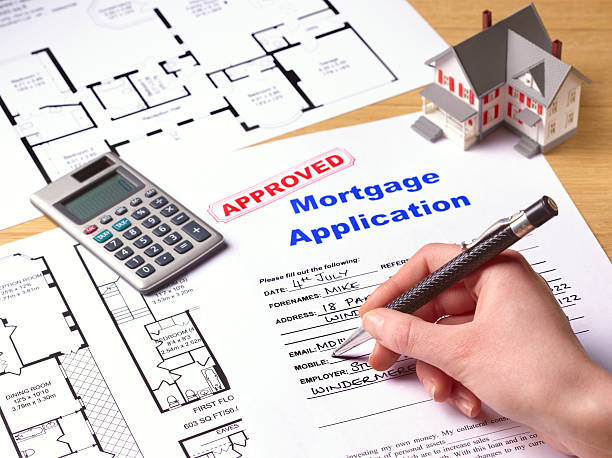How long does it take to get a mortgage? The decision to secure a mortgage is a significant step in achieving the dream of homeownership.
However, understanding the timeline associated with obtaining a mortgage is crucial for a smooth and stress-free process.
“How long does it take to get a mortgage?” is a question that often arises among prospective homebuyers.
The journey from submitting a mortgage application to finally receiving approval involves several stages, each with its own set of tasks and potential delays.
In this article, we will delve into the intricacies of the mortgage application timeline.
Whether you’re a first-time homebuyer or someone looking to refinance, having a clear understanding of the timeline can help you plan effectively, manage expectations, and make informed decisions.
So, let’s dive into the details and unravel the question: How long does it take to get a mortgage?
Also Read:
How to Increase Mortgage Preapproval Amount
What Happens If You Miss a Mortgage Payment?
How Long Does It Take to Get a Mortgage?
The timeline to secure a mortgage encompasses various stages and can vary depending on factors such as the type of mortgage, individual circumstances, and lender efficiency.
On average, the process typically spans 30 to 45 days from application to closing.
Initially, gathering and preparing necessary financial documents, like tax returns and bank statements, may take a few weeks.
The application submission marks the official start, triggering credit checks, and underwriting processes, generally consuming two to four weeks.
Complexities such as credit history issues or property appraisal discrepancies might extend this phase.
External factors like appraisal and home inspection can add a week or two.
Meanwhile, proactive communication with the lender, prompt document submission, and strong credit history can help expedite proceedings.
Streamlined mortgages like FHA or VA loans might have faster approval times, around 30 days, due to specific guidelines.
Conversely, jumbo loans or loans requiring additional documentation might extend the timeline.
Overall, while the average mortgage process takes around a month to a month and a half, individual situations and proactive approaches significantly impact the duration.
Factors Influencing the Duration of Mortgage Approval
The duration of mortgage approval is influenced by a multitude of factors that can either expedite or prolong the process.
One crucial factor is the applicant’s financial preparedness.
Having all necessary documents, including tax returns, pay stubs, and bank statements, readily available can accelerate the process.
Additionally, a higher credit score and a solid credit history often result in quicker approval times, as they indicate lower risk to lenders.
The complexity of the applicant’s financial situation and the loan type sought also play a role. Streamlined loan programs like FHA or VA loans generally have faster approval times due to specific guidelines.
Conversely, jumbo loans or loans involving self-employment income and intricate asset portfolios might necessitate additional verification, extending the process.
Property-related factors also contribute.
The appraisal and home inspection process can introduce delays if issues arise, impacting both the approval timeline and potential negotiation points.
Furthermore, lender responsiveness and efficiency are key.
A lender with streamlined processes and effective communication can significantly speed up the approval process.
External market conditions, such as interest rate fluctuations and regulatory changes, can further influence approval timelines.
To navigate these factors, applicants should focus on thorough preparation, maintaining good credit, selecting an appropriate loan type, and working closely with an efficient and responsive lender.
How to Apply for a Mortgage
Applying for a mortgage is a systematic process that requires careful preparation and diligent execution. Here’s a concise guide on how to proceed:
- Assess Your Financial Situation: Determine your budget, considering your income, expenses, and down payment capacity. Understand your credit score, as it impacts loan eligibility and terms.
- Choose a Lender: Research and select a reputable lender. Compare interest rates, fees, and customer reviews to make an informed choice.
- Gather Documentation: Compile essential documents such as tax returns, pay stubs, bank statements, and proof of assets. Self-employed individuals may need additional documentation.
- Pre-Approval: Obtain a pre-approval letter from your chosen lender. This gives you an idea of the loan amount you qualify for and strengthens your position when making an offer on a home.
- Property Search: Begin searching for properties within your budget. Once you find one, make an offer and negotiate terms.
- Formal Application: Submit a formal mortgage application to your lender. This involves providing comprehensive financial details and the property information.
- Underwriting: The lender evaluates your application, verifying the information provided. They assess creditworthiness, income, assets, and property details.
- Appraisal and Inspection: The lender arranges an appraisal to determine the property’s value. You may also opt for a home inspection to identify any issues.
- Loan Approval: Once underwriting is complete, the lender issues a loan commitment, subject to conditions like clear title and satisfactory appraisal.
- Closing: A closing date is set. Review the closing disclosure, sign required documents, and pay closing costs. The loan is funded, and ownership transfers.
Navigating the mortgage application process requires attention to detail and timely action.
Working closely with your lender, real estate agent, and other professionals can help ensure a smooth journey toward homeownership.
Also Read:
Is Homeowners Included in Mortgage?
How to Become a Mortgage Underwriter
Conclusion
The timeline to secure a mortgage varies based on multiple factors.
While the average process spans 30 to 45 days, individual circumstances, loan types, and market conditions can influence this timeframe.
Being well-prepared with documentation, maintaining a strong credit profile, and selecting an efficient lender can expedite the process.
Conversely, complexities like property appraisals or credit challenges may introduce delays.
Understanding these variables empowers prospective homeowners to navigate the mortgage journey with realistic expectations and proactive strategies.
Whether aiming for swift approval or managing potential hurdles, a well-informed approach ensures a smoother path to achieving the dream of homeownership.














